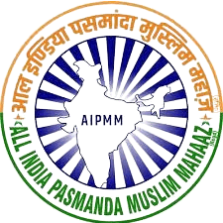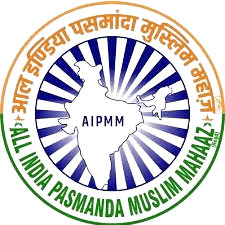 In a nation supposedly created as a homeland for Ashraf Muslims, the very architects of Pakistan – the Urdu-speaking Muhajirs – have become its most persecuted and abandoned minority.
In a nation supposedly created as a homeland for Ashraf Muslims, the very architects of Pakistan – the Urdu-speaking Muhajirs – have become its most persecuted and abandoned minority.
What began as political marginalisation has evolved into a state-sponsored campaign of violence, exclusion, and erasure. Nowhere is this more brutally evident than in the military police crackdown during the infamous 1992 ‘Operation Clean-Up’, which left thousands dead and millions terrified. Cities like Karachi and Hyderabad were effectively turned into open-air prisons for an entire ethnic community.
FROM FOUNDERS TO TARGETS
The Urdu-speaking Ashraf Muslims who migrated from India to Pakistan during the 1947 Partition – collectively known as Muhajirs – were instrumental in building the foundations of the Pakistani state. They led the bureaucracy, judiciary, media, and education sectors in the country’s early decades.
Yet, as political power became centralised in the hands of the Punjabi military elite and Sindhi political class, the Muhajirs found themselves increasingly sidelined. The emergence of the Muttahida Qaumi Movement (MQM) in the 1980s was not an act of terrorism, as the state portrayed – it was a political reaction to systematic exclusion, land and job discrimination, and ethnic profiling.
Today, nearly 16 million Muhajirs – approximately 7.6 per cent of Pakistan’s population – reside in urban Sindh. Yet, they remain politically voiceless, economically deprived, and culturally vilified.
KARACHI’S DARKEST HOUR: OPERATION CLEAN-UP 1992
The repression of Muhajirs reached a gruesome climax in June 1992, when Prime Minister Nawaz Sharif’s administration, under military command, launched Operation Clean-Up. Ostensibly a campaign against crime, this operation rapidly mutated into a genocidal mission targeting MQM sympathisers and the broader Urdu-speaking populace.
According to reports by Human Rights Watch and Amnesty International, between 2,000 and 3,000 Muhajirs were killed in 1992 alone. Over the next seven years, the total number of those killed, disappeared, or tortured exceeded 10,000.
Mass graves were discovered on the outskirts of Karachi. Once-thriving neighborhoods like Orangi Town, Liaquatabad, and Latifabad in Hyderabad turned into war zones.
Children were abducted. Women were assaulted. Entire families were burned alive in raids carried out under the silent watch – or direct participation – of state forces.
Torture cells operated from Rangers’ headquarters, local police stations, and unofficial military dungeons. Meanwhile, Pakistan’s judiciary remained disturbingly silent – effectively complicit in this slow, systematic genocide.
NASEERULLAH BABAR: THE BUTCHER OF KARACHI
 The name Naseerullah Babar still sends shivers down the spine of many Muhajirs. As interior minister during Benazir Bhutto’s second tenure (1993 to 1996), he led what he chillingly referred to as a “cleansing” of Karachi.
The name Naseerullah Babar still sends shivers down the spine of many Muhajirs. As interior minister during Benazir Bhutto’s second tenure (1993 to 1996), he led what he chillingly referred to as a “cleansing” of Karachi.
Babar issued shoot-on-sight orders, granting blanket authority to security forces to kill on suspicion – no trial, warrants, or accountability.
Babar had famously declared: ‘We will clean Karachi at any cost.’ That cost was paid with the lives of innocent Urdu-speaking civilians.
Reports from the Human Rights Commission of Pakistan (HRCP) from that time documented widespread enforced disappearances, extrajudicial executions, and institutionalised torture – all carried out under the watch of Babar’s interior ministry. Instead of being held accountable, he was celebrated as a national hero.
ENCOUNTER KILLERS: CHAUDHRY ASLAM AND THE CULTURE OF DEATH
Among Babar’s enforcers was Chaudhry Aslam, a so-called “encounter specialist”, who functioned more like a death squad leader than a law enforcer.
Under the guise of anti-terror operations, Aslam became infamous for extrajudicial killings, particularly of young Muhajir men. More than 100 deaths are attributed to his unit – many in staged shootouts or during custody.
Human rights organisations like HRCP and Amnesty International repeatedly flagged his operations, citing enforced disappearances and custodial torture. Yet, Aslam was never punished. Instead, he was awarded medals – another chilling example of how Pakistan’s deep state rewards impunity.
STATE-SPONSORED CRIMINALITY: ZEESHAN QADRI AND BAHADUR SHAH
The Pakistani state didn’t limit its war on Muhajirs to police and military operations; it also outsourced violence to criminal gangs.
Zeeshan Qadri, linked to the 2012 Baldia factory fire that killed 258 workers – most of them Muhajirs – operated under the political protection of the Pakistan Peoples Party (PPP).
Similarly, Bahadur Shah, a notorious gangster from Lyari, carried out deadly attacks on MQM strongholds using grenades and automatic weapons – often with logistical and intelligence support from the state.
While the MQM was relentlessly demonised as a terrorist group, the state itself armed criminal militias responsible for killing Urdu-speaking civilians. This calculated hypocrisy laid bare the ethnic and political motives behind the violence.
MASSACRES THAT STILL HAUNT
Long before Operation Clean-Up, the warning signs were there. In 1986, during the Qasba-Aligarh massacre, more than 300 Muhajirs were slaughtered by ethnic mobs while law enforcement watched passively.
In 1992, dozens of mourners at a funeral in Khajji Ground were gunned down in broad daylight. These were not spontaneous riots. They were planned massacres – part of a broader strategy to terrorise, silence, and ultimately erase a community.
MEDIA CENSORSHIP: ERASING THE NARRATIVE
 Throughout the 1990s and 2000s, the Pakistani media – under the thumb of the military and the Inter-Services Intelligence (ISI) – imposed a near-total blackout on Muhajir persecution.
Throughout the 1990s and 2000s, the Pakistani media – under the thumb of the military and the Inter-Services Intelligence (ISI) – imposed a near-total blackout on Muhajir persecution.
Journalists who tried to expose the truth were exiled, intimidated, or killed. The MQM was framed as an Indian proxy, and Muhajirs were branded as traitors – justifying the bloodbath in the name of national security.
Even in the digital age, censorship continues. In 2023 alone, more than 1,200 social media accounts were suspended for raising concerns about Muhajir disappearances or criticising the military. The Prevention of Electronic Crimes Act has become a digital blasphemy law – used not to protect citizens, but to criminalise truth-telling.
THE STRUGGLE CONTINUES: 2025 AND BEYOND
Despite claims of democratic progress, the systematic repression of Muhajirs continues in 2025.
The 2024 general elections saw blatant gerrymandering of Karachi’s constituencies to dilute the Muhajir vote. Enforced disappearances remain common.
According to the HRCP’s 2023 report, at least 44 Urdu-speaking political workers were abducted in Karachi that year alone. None have returned.
Economically, Muhajirs remain excluded from civil services, police forces, and government jobs. Despite Karachi contributing over 20 per cent of Pakistan’s gross domestic product (GDP), its Muhajir-majority neighbourhoods face chronic power outages, crumbling infrastructure, and relentless police brutality.
GLOBAL SILENCE, NATIONAL HYPOCRISY
While Pakistan continues to posture as a champion of global Muslim causes – from Kashmir to Palestine – it has waged a decades-long war against its own citizens.
The silence of the international human rights community is deafening. No tribunal has investigated the 1992 atrocities. No court has indicted the generals, ministers, or encounter specialists behind this genocide. This is not just a domestic failure, it is an international disgrace.
A HUMAN APPEAL FOR JUSTICE
As a human being, and as someone who believes in justice, I say this: Muhajirs do not seek revenge. Muhajirs seek acknowledgement.
They demand truth, accountability, and dignity. Those responsible for the 1992 massacres must be named and prosecuted. The disappeared must be brought home. The media blackout must end. And Pakistan must confront the truth of what it has done.
Until the state reckons with its crimes against Muhajirs, it cannot truly be called a democracy. It will remain, in essence, a militarised ethnic state built not on unity, faith, and discipline, but on blood, silence, and impunity.
 Shariq Adeeb Ansari
Shariq Adeeb Ansari
National Working President
All India Pasmanda Muslim Mahaz.

